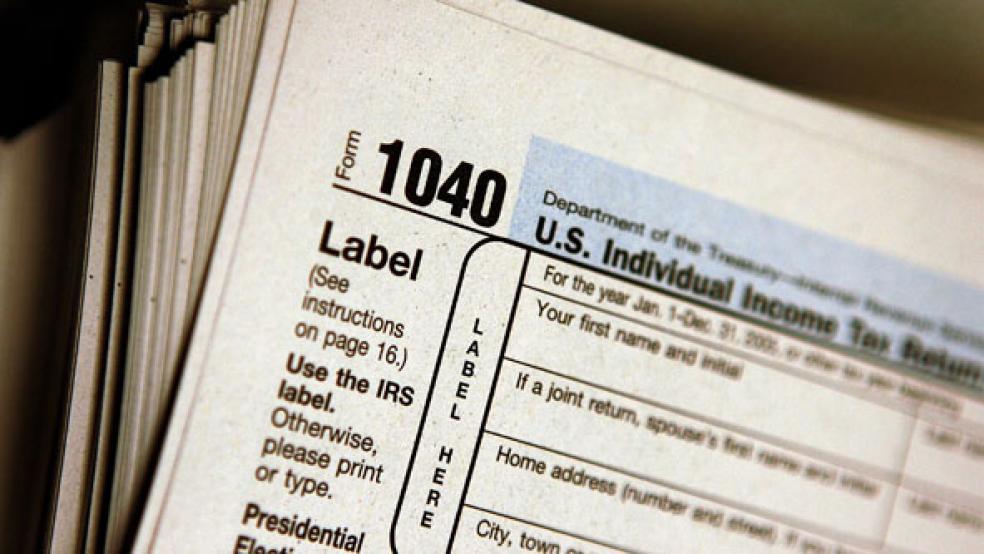With U.S. income tax rates up this year, more Americans will likely be looking for charitable deductions that can help offset their higher tax bills.
After all, in the top tax bracket, a $10,000 charitable donation is now worth $3,960, compared with $3,500 last year, assuming no other limitations.
But in the wake of two U.S. Tax Court cases last year, which slashed petitioners' charitable contributions based on record-keeping snafus, taxpayers must be careful to get thank-you letters with the right wording, as required for gifts of $250 or more, and valid appraisals, as needed for donations of art, property and other goods worth $5,000 or more.
In one of the Tax Court cases, a California couple, Joseph and Shirley Mohamed, were denied a writeoff for giving away property they had valued at $18.5 million because they didn't have a qualified appraisal - even though independent appraisals later found they had undervalued the donation.
In the other case, a Texas couple, David and Veronda Durden, were denied a deduction for more than $25,000 of cash gifts, mostly to their church, because they didn't have a letter stating they had received no goods and services for their donation - and by the time they got it, the court ruled, it was too late.
RELATED: HOW TO MAXIMIZE TAX BREAKS ON ON CHARITABLE GIVING
"It's one of those cases where you think, wow, really?" says Steven Fromm, a Philadelphia tax attorney, of the Durden case. "I was just shocked."
The rulings, taken together, raise broad issues for the nearly 38 million taxpayers who claim charitable writeoffs. The charitable writeoff is one of the largest, worth some $175 billion in tax year 2011, according to Internal Revenue Service data. (Americans give away far more than that, but only those who itemize on their tax returns are allowed to take the charitable deduction.)
Yet much of that is, like the Durdens' donation, cash gifts to religious institutions or other local nonprofits. And few of these donors pay much attention to the letters they receive (or don't) in return, simply setting them aside for their accountants to deal with later.
"The burden falls on the donor, and there's nothing to enforce it against the charity," says Ellen Aprill, a tax law professor at Loyola Law School in Los Angeles. "It's because a lot of people were cheating and claiming that things they gave as quid pro quo were donations."
Here are three charitable donation pitfalls to avoid.
1. Vaguely worded thank-you notes
The wording of thank-you letters is important, and those who get receipts that leave out the magic words about no gifts or services being exchanged for the donation do not meet the IRS standard.
RELATED: 13 TAX BREAKS YOU'VE NEVER HEARD OF
"It's very common," Aprill says.
Big donors may encounter this problem more often than others. While the small fry get boilerplate letters, perhaps drawn up by a lawyer who knows the ins and outs of the tax rules, big donors may get personalized letters from organization's executive directors that leave out the magic words.
In fact, Aprill's brother, as the executive director of a nonprofit in Chicago, once sent her a thank-you letter that wasn't exact enough for the tax rules, lacking the proper wording of "no goods or services."
2. Giving to individuals, not organizations
Record-keeping problems aren't all that can trip up efforts to get back a little on taxes for your generosity. Tax rules only allow you to take the writeoff for funds you give to a qualified nonprofit. If you give to an individual, no matter how worthy, that's a gift, and it's not deductible.
In the current landscape of immediate, emotionally charged giving - where many people's impulse after watching a tragedy unfold in real time on television or online is to help - it's easy to get tripped up.
RELATED: WHY MORE AFFLUENT AMERICANS PAY NO TAXES
Give money directly to the survivors or the Boston marathon bombing? Not deductible. Give it to an official nonprofit set up to help those survivors? Fine.
If you aren't sure whether a charity meets the tax standards, you can search the IRS's database of qualified groups here: www.irs.gov/Charities-&-Non-Profits/Exempt-Organizations-Select-Check .
3. Donating property without an appraisal
Things get more complicated with donations of property or artwork, where differences of opinion over what something is worth can amount of thousands (or millions) of dollars.
Attorney Fromm says he has been seeing more issues with conservation easements, where someone grants an easement of their property and takes a deduction for its valuation in excess of what they may have been paid for it. "The rub is, what is the value of the easement?" he says. "People get into arguments with the IRS."
For those who donate property, it's crucial to get an independent appraisal. As the Mohamed case showed, even if your donation is worth more than you claim, if you try to determine its value yourself, you could lose the writeoff. "The IRS will go after procedural faults because valuation faults are so difficult to prove," Aprill says.
RELATED: THE 10 WORST TAX MISTAKES YOU CAN MAKE
For smaller items, like cars - which have their own special rules - it can also get tricky. If you're donating your clunker, and it's worth more than $500, your deduction is limited to the amount the charity sells it for. You'll need documentation on that, too. "Car donations are kind of a mess," says Robin Christian, a senior tax analyst at Thomson Reuters.
Those unlucky enough to get audited stand to lose more than their charitable deduction. They can also be dinged for interest and penalties on the underpayment.
"If a client goes through an audit," says Fromm, who has handled many of them, "they never want to do it again."





